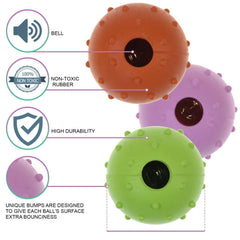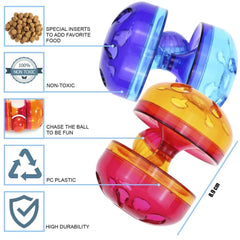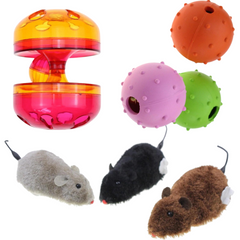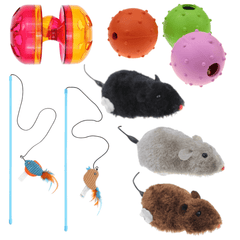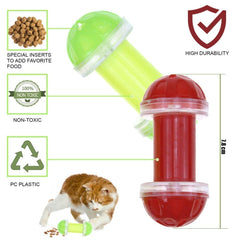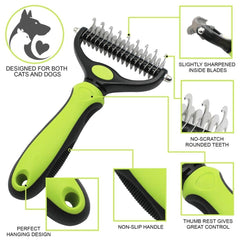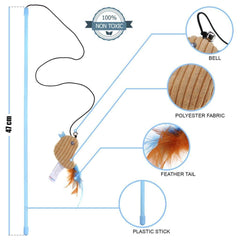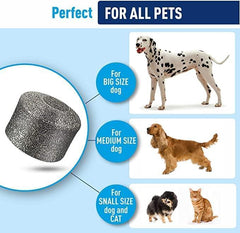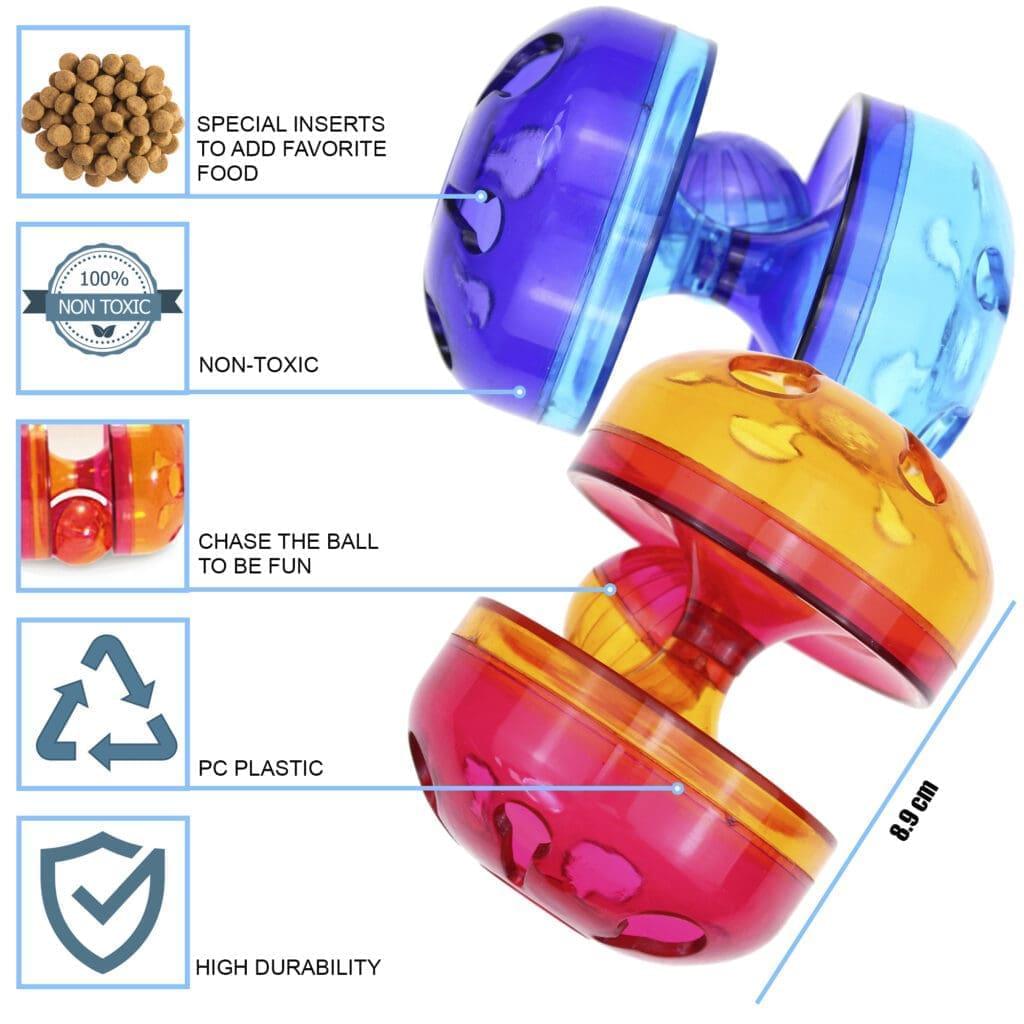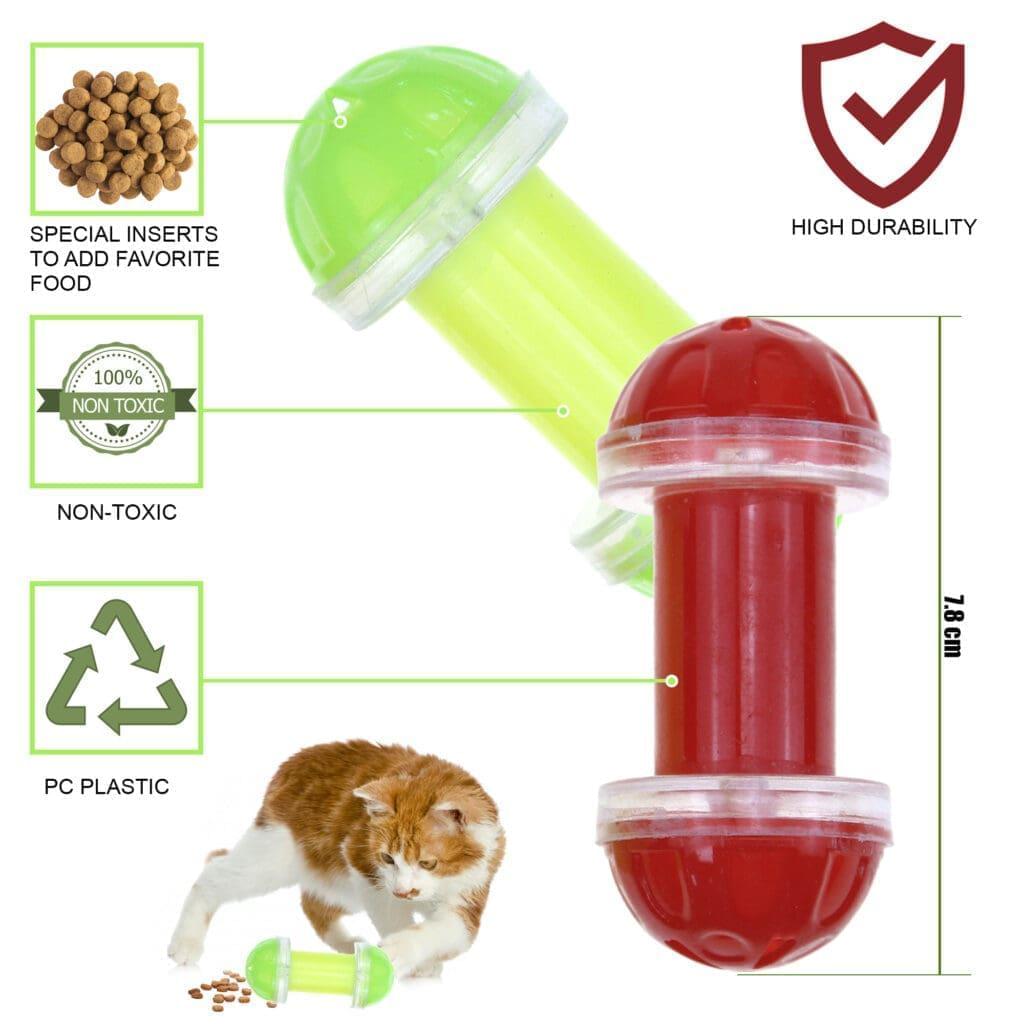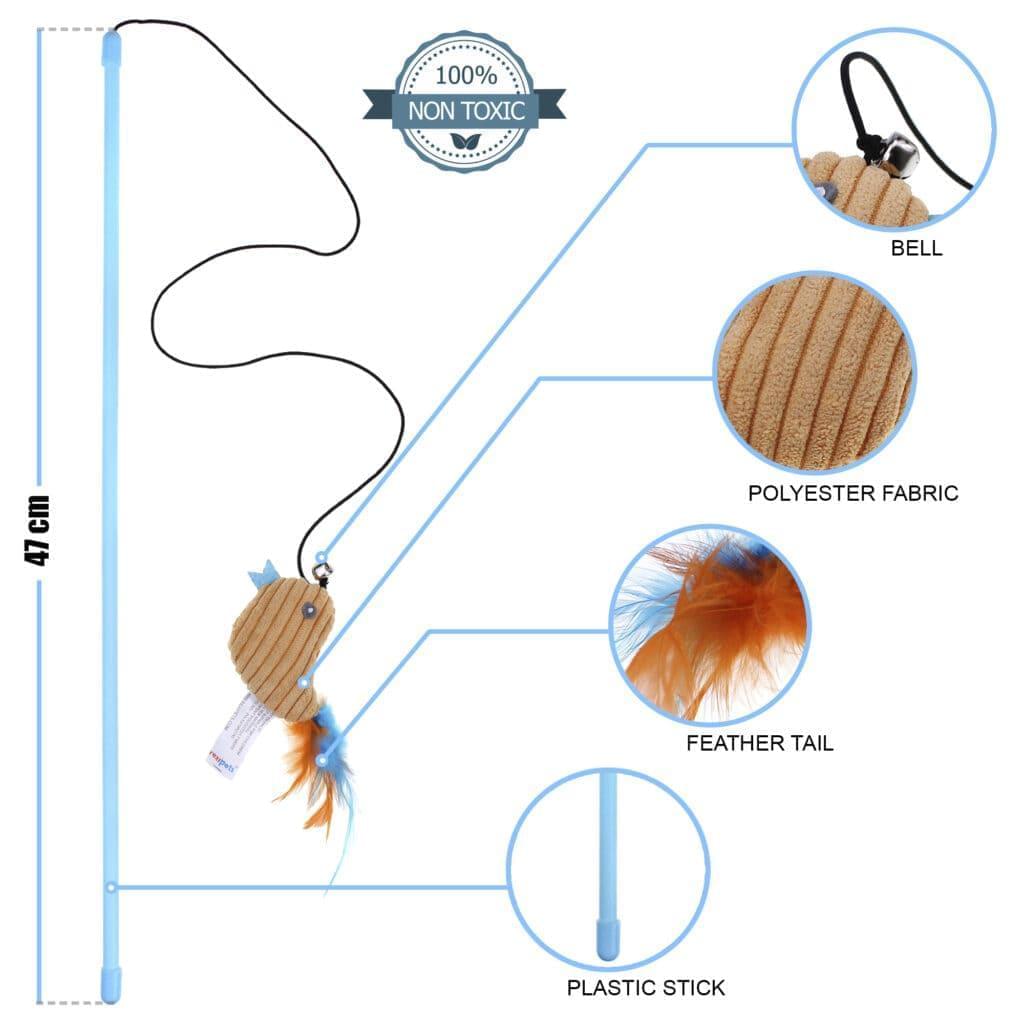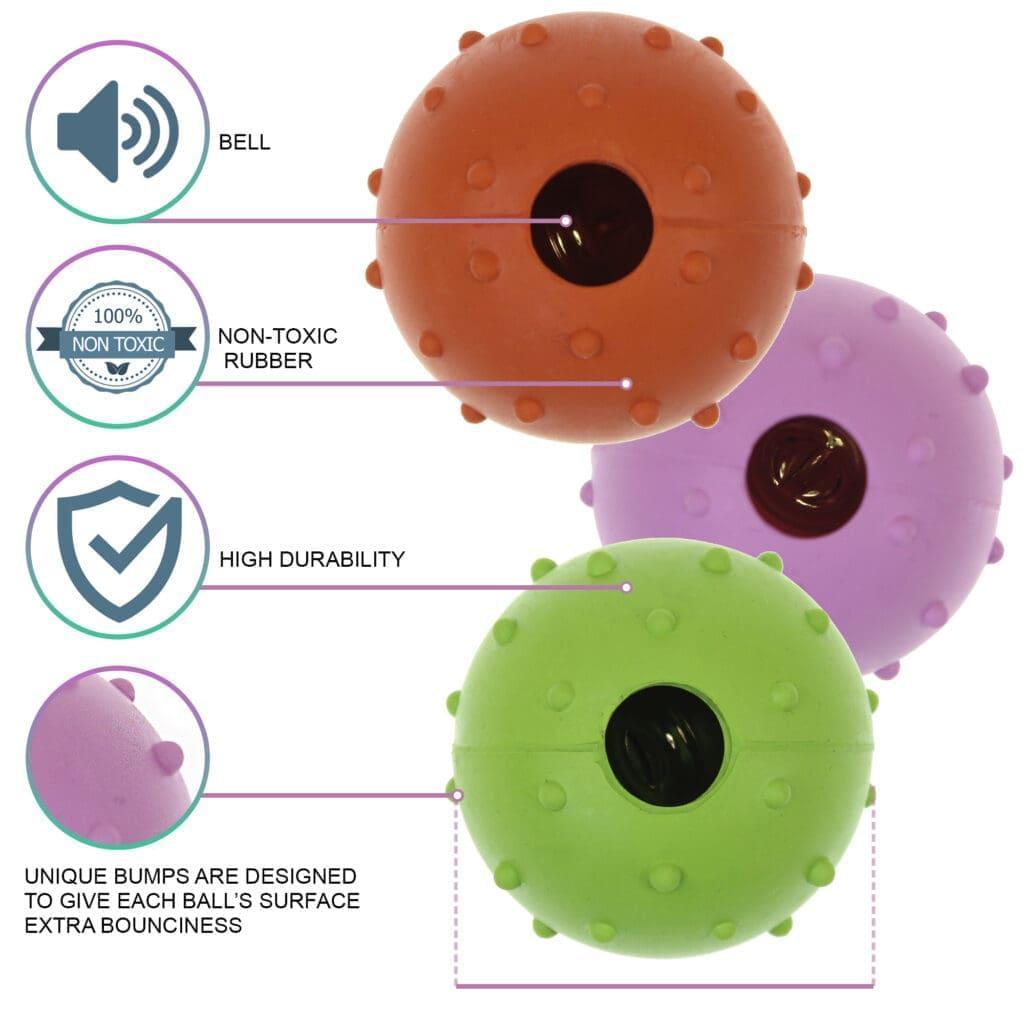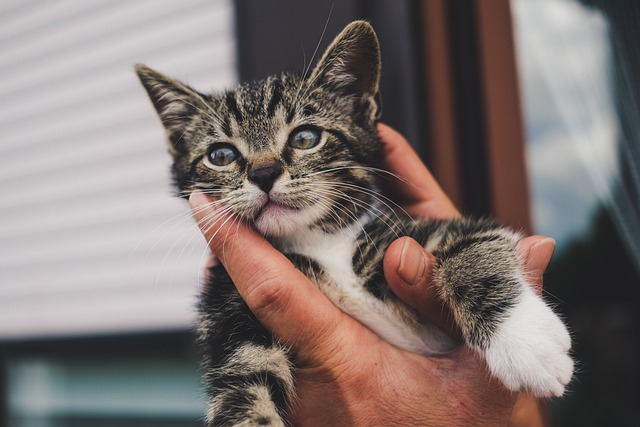
Kittens are tiny bundles of fur that bring endless joy and companionship to your life. But, along with that, it is essential to realize that adopting a kitten comes with a lot of responsibilities. Just like with any new addition to your family, it's essential to be well prepared to ensure a welcoming home and the best care for your new feline friend.
In our article, we'll discuss the new kitten checklist, and we're going to break it all down for you. We'll chat about the must-have supplies, how to kitten-proof your place, and share some pro tips on keeping your new fluffball healthy and happy.
So, whether you're a seasoned cat parent looking for tips or a newbie to the world of kittenhood, grab a comfy seat, and let's get you clued in on what's ahead in your new adventure with your furry friend!
Supplies You Need Before Bringing a Kitten Home
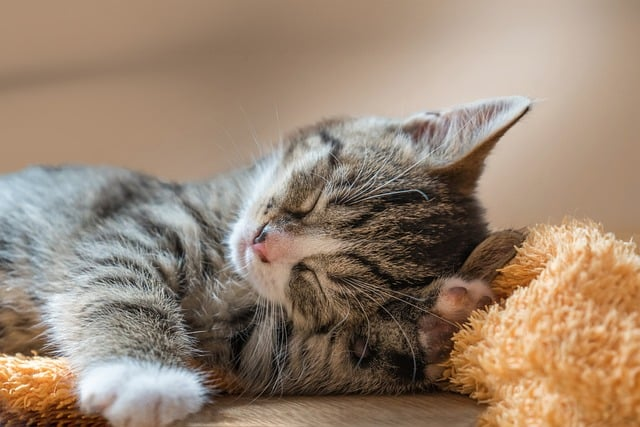
Now, you must be wondering how to take care of a kitten. So, let's dive right into the essentials you need before you welcome your kitten into your home. Here's your shopping list for kitten supplies:
-
Cat Carrier
You need a special cat carrier for taking your kitten to meet friends, the groomer, or the vet. It can be hard or soft. But it should be strong and give your kitten enough space to turn around comfortably.
Usually, it is recommended that that cat carrier should be about 1.5 times bigger than your kitten. Also, choosing one with a lid that you can take off quickly is a good idea. This makes trips to the vet less scary for your kitten.
-
Kitten Food
With all the products out there claiming to be the best for your new furry friend, picking the perfect ones can feel like a puzzle. Just remember, little kittens have different tummies than adult cats, so go for a balanced diet made just for kittens, packed with the vitamins and minerals they need.
When it comes to food, dry kibble is a champ at keeping those kitty teeth clean. So, going all-in on canned food isn't the best idea. It's like a mix of wet and dry or just dry grub that works well.
If you're confused about which brand to pick, no worries! This is where your vet comes in. They can point you in the right direction.
Pro tip: Create a kitten vet checklist with all your questions so that you don't miss out on anything.
Then there are those training treats – they're like little kitty rewards for good behavior. But don't go overboard with them. As a general rule of thumb, treats should stay below 10% of your feline friend's daily food intake.
-
Food and Water Bowls
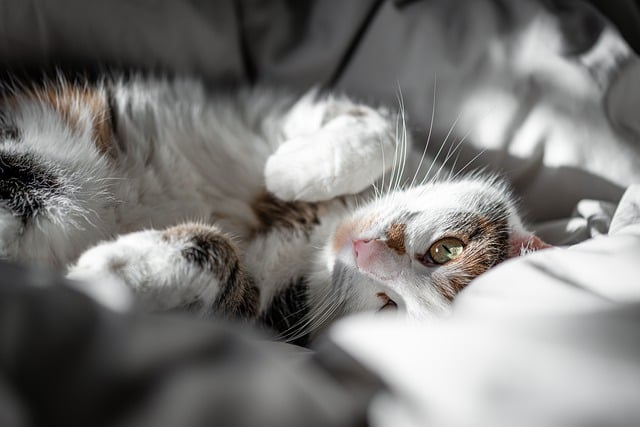
Food and water bowls come in various styles and sizes, and some even have special features. When choosing between an elevated bowl, a slow feeder, or an automatic feeder, think about what works best for your daily routine, your kitten's size, and how they like to eat.
Suppose your kitty enjoys sipping from a flowing water source. In that case, consider treating her to a fancy cat water fountain available on the market.
-
Kitten Litter
When it comes to kitten supplies, getting a kitty litter box is a top priority in kitten essentials. To get your kitten started, choose a shallow pan with lower edges so they can hop in easily.
You'll also want to pick up kitten-friendly litter that's safe to use. Stay away from clumping litter until your furball is a bit older, as it can cause tummy troubles if swallowed. And go for the dust-free kind to keep allergies and kitty asthma at bay. Some cats might even prefer litter mats because they find them comfier to stroll on.
Don't forget to grab some liners and a trusty scooper to keep the litter box area smelling fresh and clean.
-
Cat Bed
When it's time to pick out cat beds for your new kitten, starting with a small one is fine, but remember, they'll grow pretty fast. So, it might be smarter to go for a bed meant for adult cats and use blankets to make it feel cozy and safe for your little furball.
Also, think about how easy it is to wash the bed material. You'll be washing your pet's bed quite a bit to eliminate the smells and prevent germs. Beds with removable covers are easy to toss in the washing machine, thus a really good option.
-
Cat Collar
It's smart to get your kitten a safety collar with an ID tag. Get a bell as well if you can. This way, you can always keep tabs on their whereabouts. Even if you're planning to raise them as indoor cats, having a collar and ID tag is a handy backup plan in case they decide to set out to explore the neighborhood.
Opt for a cat collar with a breakaway safety clasp, as accidents can happen, and kittens can get into tight spots. This special feature prevents mishaps if they get tangled up in something while playing or exploring. Ensure the collar isn't too tight to avoid digging into your kitten's skin. You can even get a cat harness.
-
Nail Clippers
Cutting your kitten's nails regularly isn't just about keeping your furniture safe. It also helps your cat avoid painful nail problems and infections. So, a sharp pair of nail clippers is essential in the kitten checklist.
If you start trimming their nails when they're still a kitten, it'll be easier as they grow up. Picking the right nail clippers for cats makes them a lot more job simpler.
-
Brush or Comb
Adding a comb and brush for cats to the checklist is a must. These grooming tools help keep your kitten's fur in top shape and can prevent issues like mats and tangles.
Plus, it's a good way to bond with your little friend. So, don't forget to include a brush and comb in your kitty's kit!
-
Toothbrush and Toothpaste
Adding a small toothbrush and kitty toothpaste to your new kitten shopping list is essential. As your kitten grows, they'll lose their baby teeth by around four months of age, making way for their adult teeth.
To ensure your furry friend's dental health and prevent bad breath, sore gums, and gum disease, it's essential to start introducing tooth brushing to your kitten as early as you can.
-
Toys
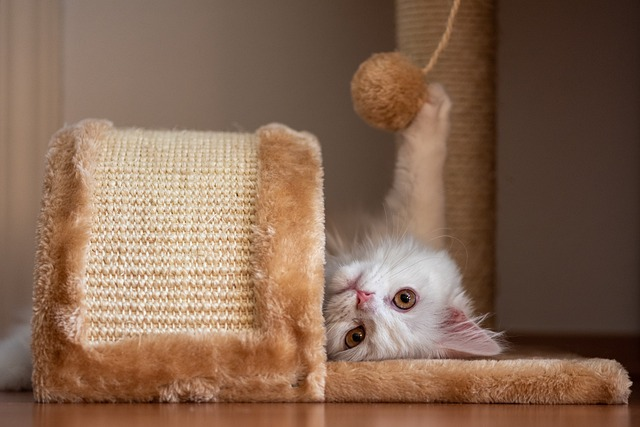
Kittens love to play, and you can get different cat toys for them. They enjoy soft toys they can carry around, small cat toys, mice they can play with, and toys with catnip that can calm them down.
There are many different options for cat toys available in the market. We at Rexiipets have quite a large collection, too. They're super fun for your playful kitten and also let you spend quality time playing together.
So, grab a bunch of toys to keep your kitten entertained and get even closer to your new little buddy!
-
Scratching Post
A cat scratching mat is essential for kittens. They offer exercise, keep nails in check, and help reduce stress. Cats scratch to mark territory and relieve anxiety, and a dedicated post prevents furniture damage.
Some posts come with added toys for entertainment. When choosing one, ensure it's sturdy and tall enough for full stretching. Place it in a prominent spot and gently guide your kitten to use it, rewarding them for good behavior. This way, you'll save your furniture while keeping your kitten busy and happy.
-
Cat Tree
Consider having at least one cat tree or tower for your kitten, and it's even better if it reaches around six feet in height. Look for a solid and well-built tree with various levels, cozy hideaways, and surfaces covered in carpet or sisal rope for scratching.
Even if you're short on space, don't worry! There are cat tree options designed for compact living spaces.
Additionally, you can also enhance your space with cat-friendly shelves and window perches to create a kitty paradise.
Lastly, but most importantly on our list, are patience and love, not something you buy but necessary. Your kitten will need time to adjust to their new home. Shower them with love, and you got yourself an instant best friend.
Kitten-Proofing Your House
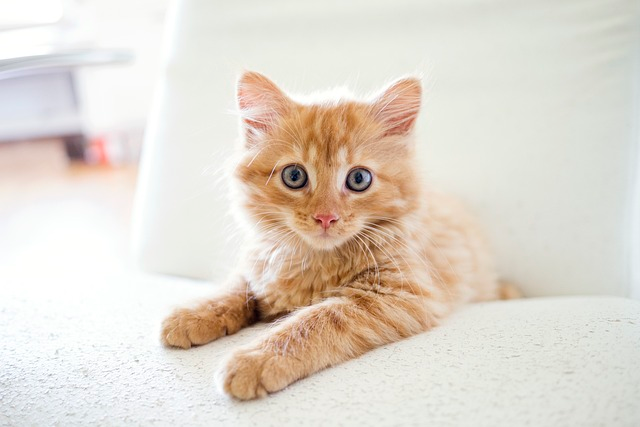
Getting your home ready for your new kitten is crucial. Before bringing them to a kitten-proof home, though, there are some critical steps to ensure their safety and well-being.
One essential task is managing cords around your home. Kittens are naturally curious and might chew on cords, like those from blinds or electronic devices. Be mindful of cords that are chewable, such as those from phones or chargers. Kittens might nibble on these, which could be dangerous for both them and your devices. To prevent accidents, secure or hide these cords.
Additionally, it's a good idea to remove breakable items from shelves or high places accessible to your kitten. Kittens can be quite playful and may accidentally knock things over during their explorations.
Kittens may also try to eat small objects they come across. Before your kitten arrives, scan your home for any tiny items that could pose a choking hazard and pick them up.
Many plants are toxic to cats, and most kittens are inclined toward nibbling on leaves and stems. To protect your kitten, move toxic plants out of their reach or find a new home.
Taking all these precautions will help you give a safe and welcoming environment to your new furry family member, allowing them to explore and play without unnecessary risks to their health and safety.
Final Words

Bringing a new kitten into your home is a beautiful journey filled with love and friendship. Our checklist has covered all the essential things you need to do and have before you bring in your furry buddies.
From ensuring their safety by kitten-proofing to providing the right supplies, nutrition, and a loving environment, you are embarking on a journey that will be highly heartwarming.
Remember, it's essential to be patient and kind as your kitten gets used to their new home and grows into a happy, healthy cat.
With the right care, your new kitten will fit right into your family, bringing lots of happiness into your life. So, prepare for this exciting adventure and enjoy the bond you'll share with your new furry friend.
Frequently Asked Questions
How to prepare for a kitten?
Preparing for a new kitten involves:
- Kitten-proofing your home.
- Gathering essential supplies.
- Ensuring proper nutrition and healthcare.
- Creating a safe and comfortable environment.
Can I feed my kitten regular cat food?
Kittens require a different type of food than adult cats to meet their unique nutritional requirements. However, if you see pet food labeled as suitable "for all life stages," it means it's safe and suitable for both kittens and adult cats to consume.
What can I do to prevent my kitten from scratching furniture?
Provide a scratching post and encourage your kitten to use it by gently guiding their paws and offering treats or praise. You can also use cat-friendly deterrents on furniture.
Should I neuter my kitten, and when is the right time?
Spaying or neutering is essential for your kitten's health and to prevent unwanted litters. Consult your vet for the appropriate age for your kitten. It is typically around 6 months.
